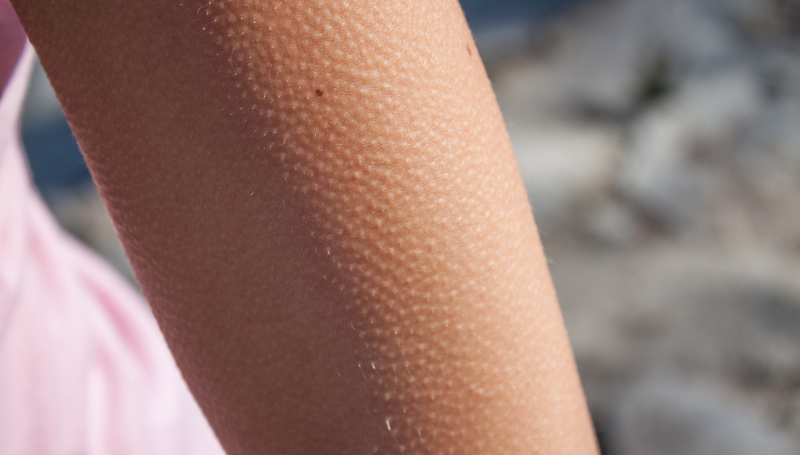Do you jolt right before you fall asleep?
(Higher Perspective) Human beings are fascinating. Think of how much your body does automatically without you having to think about it. Even the act of moving happens without any conscious effort.
Do you jolt right before you fall asleep?
The brain simply takes control, plans, and initiates the movement. The brain knows exactly what signals to send to the nervous system to control everything from the spinal cord and nerves to the muscles.
This is the reason behind these strange bodily reactions
If you think about it, there are about 600 muscles in the human body. Smiling alone uses 43 muscles. But, all of this happens without a second thought so we don’t actually take the time to understand what is happening and why. For example, what exactly makes you jolt right before you fall asleep?
Well, there’s usually an explanation for it, as well as other stranger bodily reactions.
Involuntary responses
The human body basically works on its own. There is a lot we understand and a lot we still. For example, we still don’t fully get why some people develop terminal illnesses and not others. But it also has all sorts of quirks that seemingly don’t serve in purpose when in fact, they’re working as a part of a bigger picture along with the rest of the body.
Your body talks to you and tells you exactly what it needs. When the blood stops flowing smoothly cause you’ve been sitting on one side too long, that part of your body tingles you into switching position. When you’re tired, your body makes you yawn.
The body is full of reflexes and involuntary responses. We have little control over how our bodies function but paying attention to these bodily reactions gives us important clues about what our body may need at a specific moment, and often this is enough to save us or prevent harm.
Learned through evolution
Our bodies have adapted and come a long way over time based on our environments. You’ll notice that the place where you live and grew up will change your body. For example, the water you wash your hair in can change its texture, the food you’re exposed to can create allergies, and the amount of sun you expose your skin to will change its tan.
Our bodies are smart and will evolve to increase our odds of survival. We will shiver when it’s cold to seek warmth, and our fingers will get wrinkles when wet for too long to give us a better grip. Our environment communicates with the body to stimulate dynamic and versatile responses.
Why you get goosebumps
The list of our body quirks is long, but one of the most common involuntary reactions is goosebumps. We get goosebumps when we’re chilly or experiencing extreme emotion, like shock or inspiration.
They say that sensitive and emotional people are more prone to getting goosebumps when listening to music or watching tear-jerking movies. This reaction is caused by the contraction of tiny muscles at the base of the hair follicles all over the body. This makes the hair quite literally stand upright.
You know how cats’ fur will look like spikes when they’re about to attack? We do the same thing. This involuntary response may be nature’s way of helping our bodies look larger and scarier in a threatening situation, such as if we’re overwhelmed with emotion.
What about hiccups?
Hiccups are another example of involuntary reactions that actually serve a purpose. It starts with the diaphragm experiencing a sudden and involuntary contraction. This makes the vocal cords close, which is how the hiccups yelping sound is produced in the throat.
Hiccups happen to everyone and are usually a result of overeating, getting excited, or drinking too many bubbly beverages. They’re like a release for the body.
Why you jolt as you fall asleep
So what about jolting when you’re asleep? Well, right before you fall asleep, you’re in between two worlds, the world of being awake and the world of being asleep. As you’re falling asleep, it’s not uncommon to suddenly feel like you’re falling.
We’re not actually sure yet of the exact cause of hypnic jerks. However, while biologists try to figure it out, they share the theory states that the natural slow-down of the nervous system causes the body to twitch involuntarily in that between states.
Other weird reactions: sneezing from the sun
By now, you know that the body basically has a mind of its own and makes us react to seemingly random things. Some people even sneeze just by looking up at the sun or bright light. This doesn’t affect everyone but is a relatively common disorder that affects 10% to 35% of the population.
Some people think that it’s allergies to the sun, but scientists say that it’s caused by signals between nerves in the face that make the eyes cross, resulting in a sneeze.
There’s so much we don’t understand
Science and advanced technology have helped us figure out why we have some of these quirks but biologists are still trying to get explanations. We seem to have more questions than answers.
It’s possible that we’re simply not meant to grasp the complexities of the same bodies we live in. The brain and body studying the brain and body have always been fascinating but the more we learn, the more we have questions.
Understanding ourselves from the inside out
We may not yet be able to understand all of the quirks of our bodies, but it’s on us to nurture the mind and body connection and create awareness so that we can listen to our bodies when they talk to us.
Source: Higher perspective
You may also like:
The scientifically proven benefits of sleeping in total darkness
Breathe yourself to sleep: 7 breathing exercises to help you nod off






